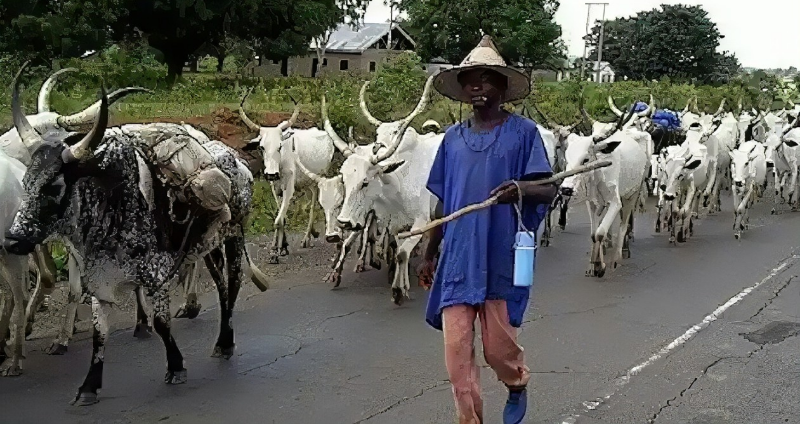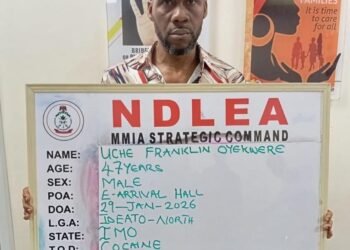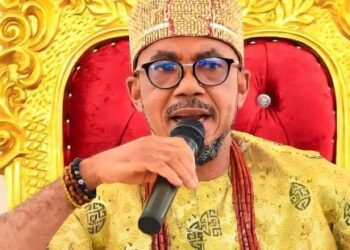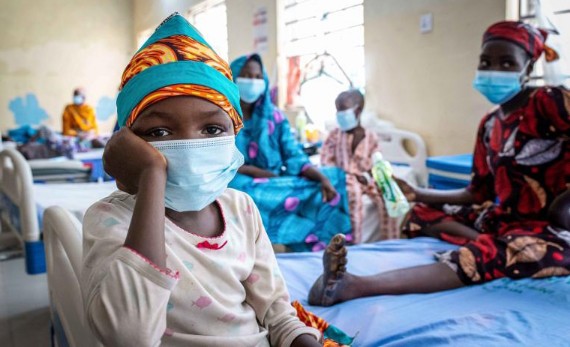Pan Yoruba socio-political group, Afẹ́nifẹ́re, has called on all the six governors in the South-West Zone to enforce the anti-grazing law without any further delay.
It also urged the governors to continue to represent what it described as “the inimitable values of the Yoruba as a people embedded with the mechanism to resolve even the most difficult of issues with irrepressible ease.
The leading Yoruba group stated this in a release, today, by its National Publicity Secretary, Mọ́gàjí Gboyega Adejumo.
The Afẹ́nifẹ́re enjoined the six governors the South-West to, at some point, make a definite pledge to commit to the establishment of cattle ranches across all Yoruba-speaking states.
“Also in their emphatic commitment to this venture, large sums of money to adequately reduce the influence of others over our existential food security issues, should be jointly provided to by all six states.
“This should be in line with the age-old culture of regional sustainance, as established by Chief Obafemi Awolowo, close to 70 years ago.
“Consequently, the Afẹ́nifẹ́re believes it is just about the best time for this most needful venture to start as we are yet again experiencing constant bombardment and harassment from the ‘Usual Suspects’.
“Also in the same vein, and as a matter of urgency, our governors must do more to protect our farmers, subsistence and commercial, from being preyed upon by the so called “cattle-grazers”, whose intent are very doubtful and, from their mode of operation, are often killers of our people.
“The urgency about the setting up of cattle ranches and the enforcement of the anti-grazing laws, as promulgated across the South-West states by our audacious state Houses of Assembly, has become more than important in view of certain incidents recorded across all the South-West states.
“The Afẹ́nifẹ́re believes that putting the already enacted anti-grazing laws into action will surely lead to end of the incessant invasion of the cattle herders who always feed their cattle with the crops and farm produce of our helpless farmers.
“It is important that, we of the Afẹ́nifẹ́re, reiterate our principled stance that is 73 years old that we do not harbour any ill-feeling against the peace-loving people from any of part of the country.
“It is just that, as the words of our late Sage, Chief Obafemi Awolowo, ring still into our conscience and consciousness, ‘it is a duty that we owe to our great motherland to enhance her and to boost her in the eyes of the rest of the world. Egalitarianism, is our national watchword, equality of good fortune must be to each, a sure reward….”
“These words are nothing more than what Afẹ́nifẹ́re has always stood for namely, equity and justice!
“The Afẹ́nifẹ́re would demand from our serving governors —whatever happened to the cattle ranches established by the late Sage Chief Obafemi Awolowo?.
“There is no condemnation from this question, just a quest to prick the conscience of our Chief Executives who also hold in deep reverence, the ingenuity, industry, policies and politics of Chief Obafemi Awolowo.
“We note the efforts of our Chief Executives, who have extensively rehabilitate some of the farm settlements, established by Chief Awolowo in the 1950’s.
“We await the rehabilitation and the establishment of both old and new cattle ranches. We have more than enough cattle ranches that can cater for our daily consumption.
“Then we used to have Fasola Farms, Oyo in the current Oyo State on 1,200 hectares; Akunu-Akoko of now Ondo State on 8,061 hectares of farmland running through Ikakumo Ise, Auga-Akoko to Edo State boundary;
“Imeko in now Ogun State on 4,000 hectares, Ayedun-Ekiti (Oke Ako) now Ekiti State on 12,000 hectares of farmland through Ikun-Ekiti; Saki in now Oyo State on over 16,000 hectares of farmland;
“Ibarapa farms in Oyo State on 5,000 hectares; Agege in Lagos State was not left out just as we also had the Dairy Farm in Ibadan.
“What is therefore left for our Chief Executives to do is more in the maintenance culture department. Resolve all existing legal issues on cattle grazing and provide the people of the South-West with the best food security and physical security structure and architecture for all our people of the South-West,” Afẹ́nifẹ́re stated in the release.






























